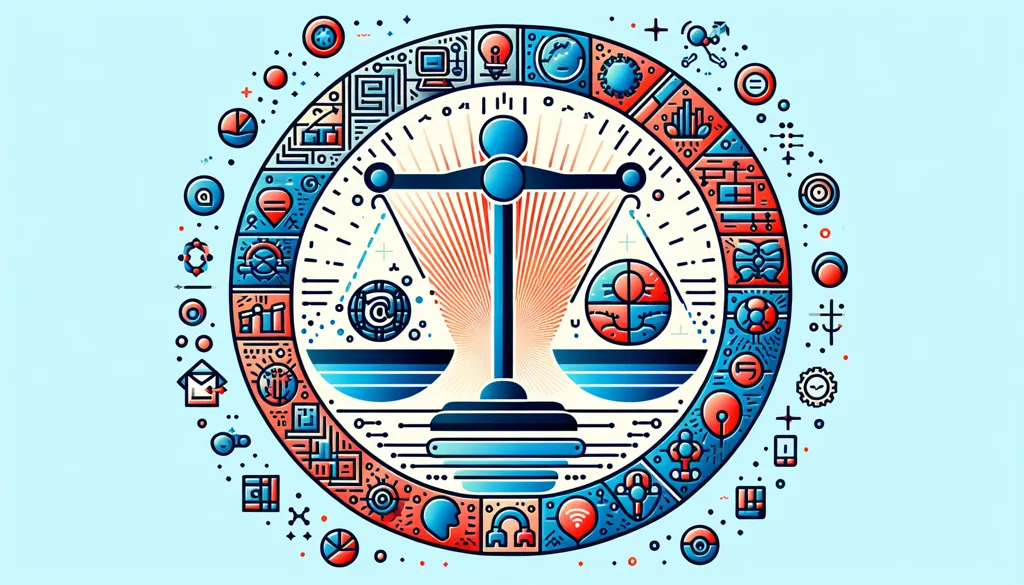The Evolving Landscape of AI: Balancing Innovation and Ethics
As a mother and a content writer living in the heartland of Kansas, I've seen firsthand how technology is reshaping our daily lives. From the way we communicate to how we manage our homes and work, artificial intelligence (AI) is at the forefront of this transformation. Recently, I delved into the world of AI, exploring its potential benefits and ethical challenges, inspired by the latest advancements by industry leaders like Lenovo and NVIDIA.
AI's Potential to Revolutionize Industries
AI is no longer a futuristic concept; it's a reality that's influencing various sectors, from healthcare to education and beyond. Technologies like machine learning and deep learning are enabling AI systems to learn from data, improving over time without human intervention. This has led to innovations such as autonomous vehicles, personalized recommendations, and even AI-driven medical diagnostics.
For instance, Lenovo's recent collaboration with NVIDIA aims to accelerate AI adoption by offering hybrid solutions that enhance productivity and innovation. These solutions promise to redefine enterprise workflows by supporting complex problem-solving and multistep planning, ultimately driving speed and efficiency.
Challenges in AI Adoption
Despite its potential, AI adoption does face significant hurdles. One major barrier is the return on investment (ROI). Enterprises are keen on seeing tangible benefits from their AI investments. Lenovo's approach addresses this by providing full-stack AI solutions that can be tailored to specific needs, ensuring that businesses not only adopt AI but also see real value from it.
Moreover, the ethical implications of AI cannot be overlooked. As highlighted by the Ada Lovelace Institute, the integration of AI in public sectors like healthcare and education raises questions about transparency, accountability, and public trust. Ensuring that AI systems are both effective and ethical is a challenge that organizations must navigate carefully.
Privacy and Regulation Concerns
The intersection of AI with data privacy is another critical issue. Regulations such as the General Data Protection Regulation (GDPR) and the California Consumer Privacy Act (CCPA) are crucial in protecting individual privacy rights. However, these regulations also pose challenges for AI systems, which often require large datasets for training and operation.
Privacy-preserving technologies are essential in this regard. They enable organizations to protect consumer data while still leveraging AI's capabilities. This balance is crucial to maintaining public trust and ensuring the ethical deployment of AI technologies.
Scalability and Global Relevance
For AI solutions to be truly effective, they must be scalable and adaptable across different contexts. This means developing privacy frameworks and fraud detection systems that can be applied globally, ensuring compliance with diverse regulatory landscapes.
Organizations like Lenovo are leading the way by offering AI solutions that are not only scalable but also customizable. This flexibility allows businesses to integrate AI into their operations seamlessly, regardless of geographic or industry-specific constraints.
Real-World Applications and Success Stories
The practical applications of AI are vast and varied. In healthcare, AI is revolutionizing the way diseases are diagnosed and treated. For instance, AI models trained to analyze MRI scans can provide faster and more accurate diagnoses, improving patient outcomes.
In the public sector, AI is being used to streamline processes and improve service delivery. However, as the Ada Lovelace Institute notes, success in these applications requires a nuanced understanding of the social and technical contexts in which AI operates.
Conclusion
As we navigate the complexities of AI adoption, it's clear that balancing innovation with ethical considerations is paramount. Organizations must prioritize transparency, accountability, and fairness in their AI systems to foster public trust and ensure long-term success.
As a mother and a professional, I am both excited and cautious about the future of AI. It's a powerful tool that, if used responsibly, can lead to significant advancements across various sectors. However, we must remain vigilant in addressing the ethical challenges it presents, ensuring that AI serves not only our technological needs but also our societal values.

